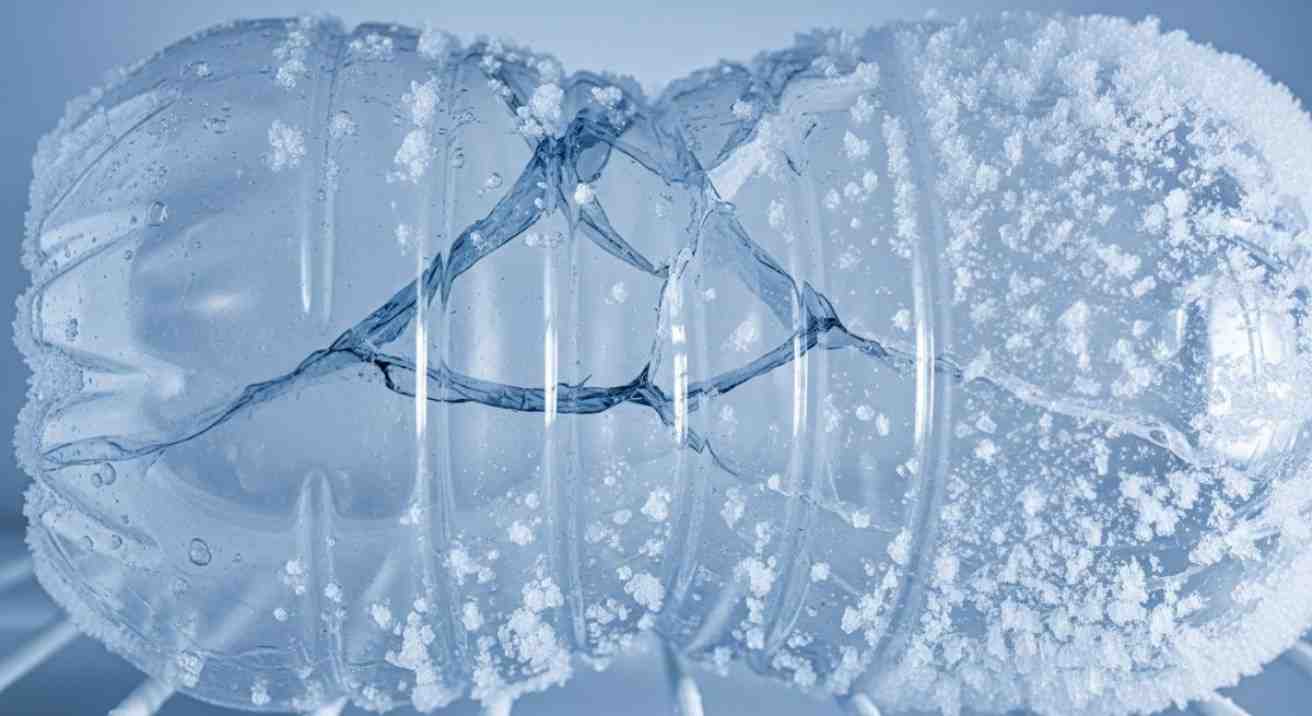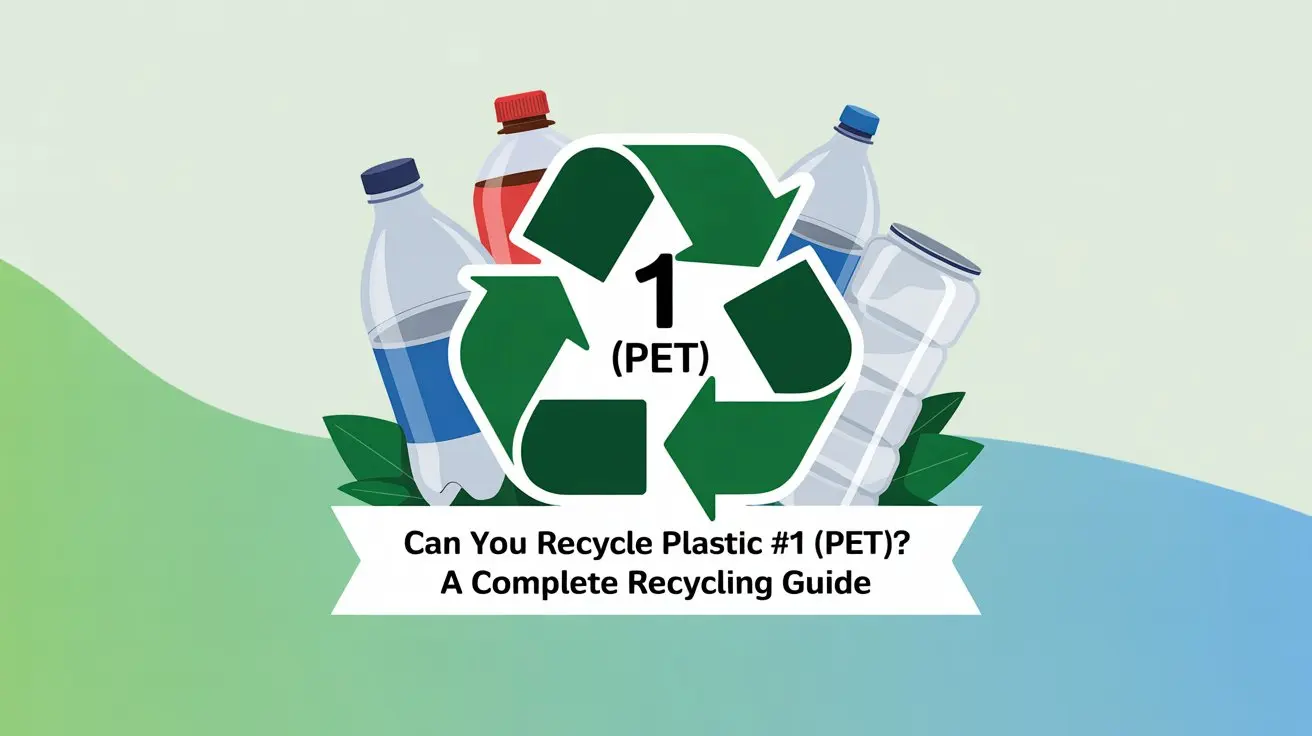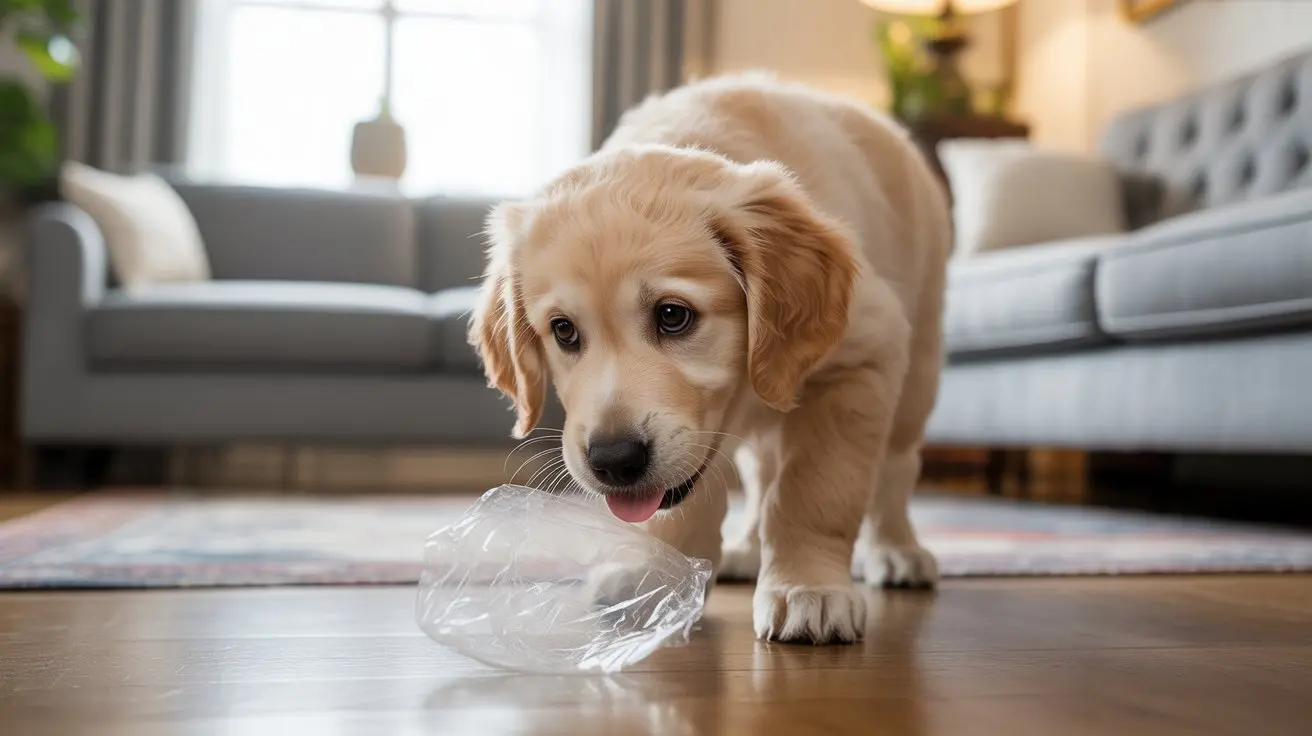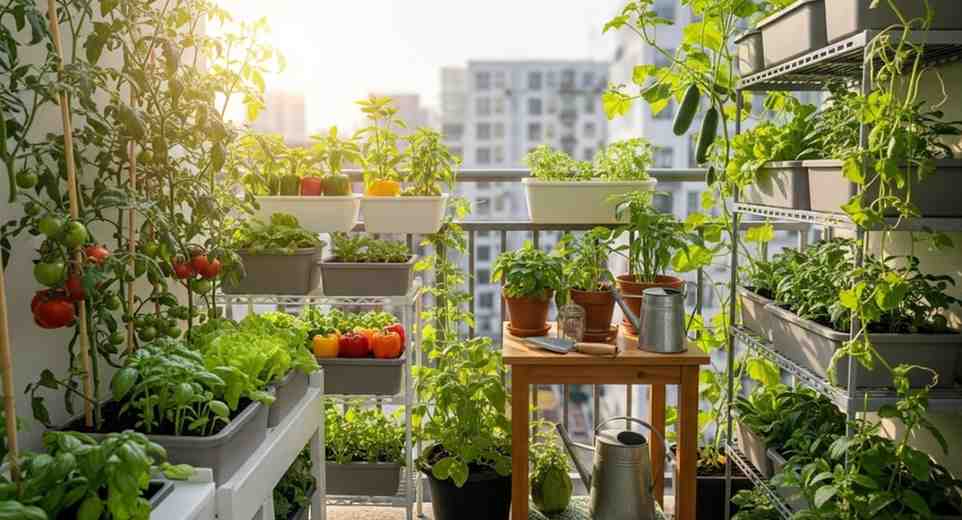Yes, plastic bottles can explode in the freezer if overfilled. Do Plastic Bottles Explode in the Freezer? Discover 5 key facts, safe plastics, and freezing tips.
Introduction
Do plastic bottles explode in the freezer? The answer lies in simple science: water expands when frozen, creating sealed container pressure that can crack or split a bottle. While plastics are flexible, thin disposable bottles may still burst. Freezer-safe plastics handle cold better, but leaving no space for expansion raises the risk. This guide explains the causes, risks, and safe freezing practices.
Do Plastic Bottles Really Explode in the Freezer?
| Situation | What Actually Happens | Why It Happens | Risk Level |
|---|---|---|---|
| Freezing plain water in plastic bottles | Bottle may bulge, crack, or leak, rarely a violent explosion | Water expands when frozen, creating sealed container pressure | Low |
| Using freezer-safe plastics (HDPE, PP) | Bottle may flex slightly but usually survives | Designed to handle low temperatures and some expansion | Very Low |
| Thin disposable bottles | Cracks or splits along seams | Plastic becomes brittle at low temperatures | Medium |
| Frozen soda or sparkling water bottles | Often burst or pop open dramatically | Combination of ice expansion + carbonation pressure | High |
| Overfilled bottles (no headspace) | Cap may pop off, bottle may split | No room for expanding ice to move | Medium to High |
In short: most bottles don’t “explode.” They usually crack, leak, or deform. True explosions are rare unless carbonation or overfilling is involved.
Risk Factors That Increase Chances of Bursting
When asking, “do plastic bottles explode in the freezer?”, the outcome often depends on these key factors:
- Type of plastic: Freezer-safe plastics like HDPE (#2) or PP (#5) can handle pressure, but thin disposable bottles become brittle at low temperatures and may crack.
- Fill level: Bottles filled to the top leave no headspace. As water expands, this creates sealed container pressure, leading to leaks or popped caps.
- Freezer conditions: Extremely cold settings or temperature fluctuations in the freezer put extra stress on the plastic, making it more likely to fail.
- Bottle age & condition: Older, scratched, or reused bottles weaken over time and burst faster when frozen.
In short, weak plastics, overfilling, and extreme cold greatly increase the risk.
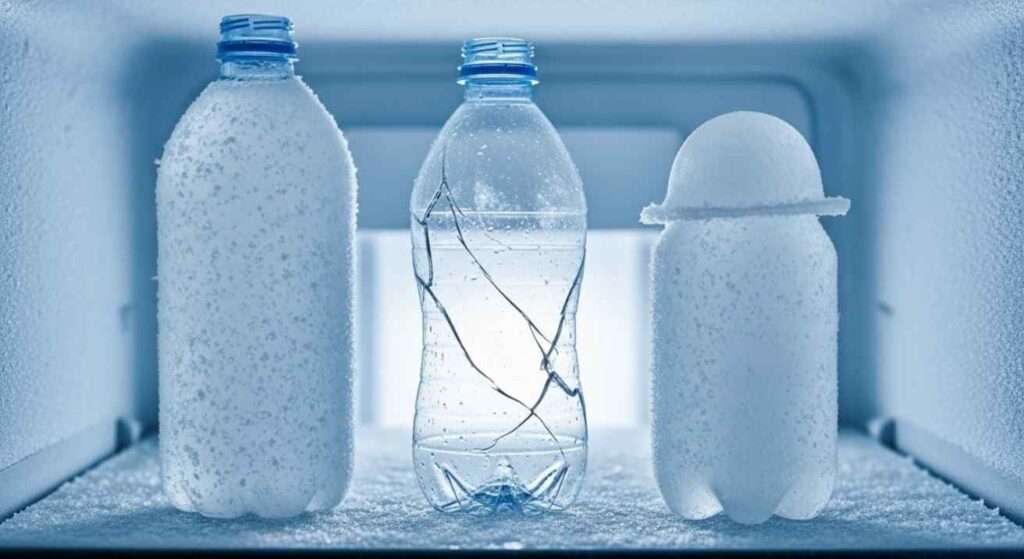
Why Soda & Sparkling Drinks Explode More Easily
When people ask, “do plastic bottles explode in the freezer?”, the risk is even higher with soda or sparkling drinks. That’s because carbonation adds extra stress inside the bottle.
- Carbonation pressure: Fizzy drinks contain dissolved CO₂ gas. When frozen, this gas expands, creating far more force than plain water.
- Freezing point difference: Sugars and carbonation lower the soda freezing point, causing uneven ice formation that weakens the bottle walls.
- Sealed plastic bottles: Since soda bottles are tightly capped, CO₂ gas buildup has no escape, making bursting much more likely.
- The result: Compared to water, soda bottles in the freezer rupture, leak, or pop caps more often due to carbonation pressure and freezer expansion.
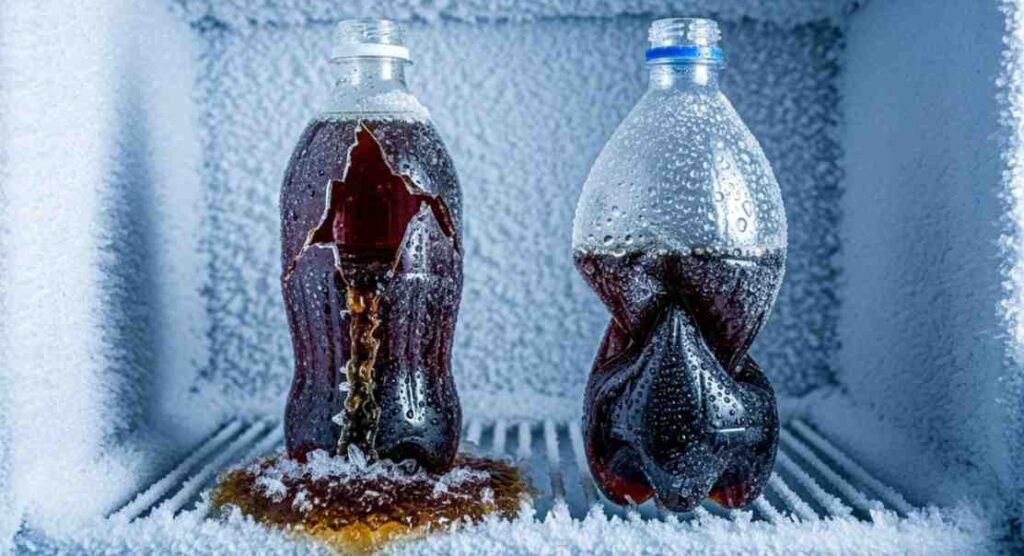
Safe Freezing Methods for Plastic Bottles
| Tip | Why It Matters |
|---|---|
| Use freezer-safe bottles (HDPE #2, PP #5) | Freezer-safe plastic bottles resist cracking, while thin disposable ones become brittle at low temperatures. |
| Leave 1–2 inches of headspace | Liquid expansion in the freezer needs room; otherwise, pressure builds and bottles may burst. |
| Avoid soda & fizzy drinks | Carbonation pressure and CO₂ gas buildup make soda bottles far more likely to explode when frozen. |
| Check bottle condition | Old, scratched, or weakened bottles fail faster under freezing stress. |
| Maintain stable freezer temperature | Extreme cold or temperature fluctuations strain plastic and increase bursting risk. |
By following these safe freezing methods, you can prevent bursting and avoid the common problem of plastic bottles exploding in the freezer.
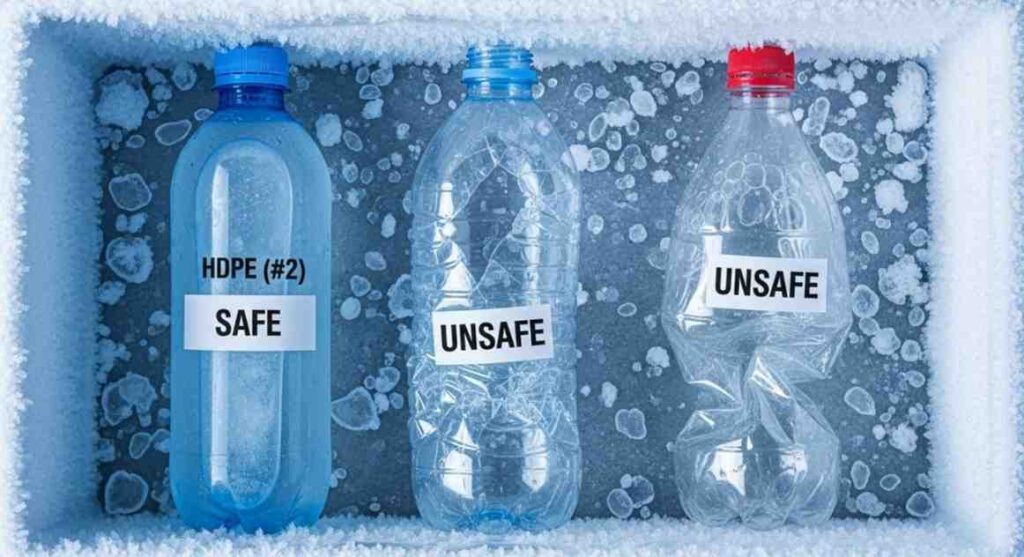
Myths vs Facts About Freezing Plastic Bottles
Many wonder, “do plastic bottles explode in the freezer?” The truth is mixed with myths.
- Myth: All bottles explode when frozen.
Fact: Freezer-safe bottles with headspace can handle liquid expansion. - Myth: Soda bottles freeze safely.
Fact: Carbonation pressure and CO₂ buildup make fizzy drinks burst easily. - Myth: Any plastic works in the freezer.
Fact: Thin disposable plastics become brittle, while HDPE (#2) and PP (#5) are safer.
Knowing the facts helps you freeze liquids safely and avoid accidents.
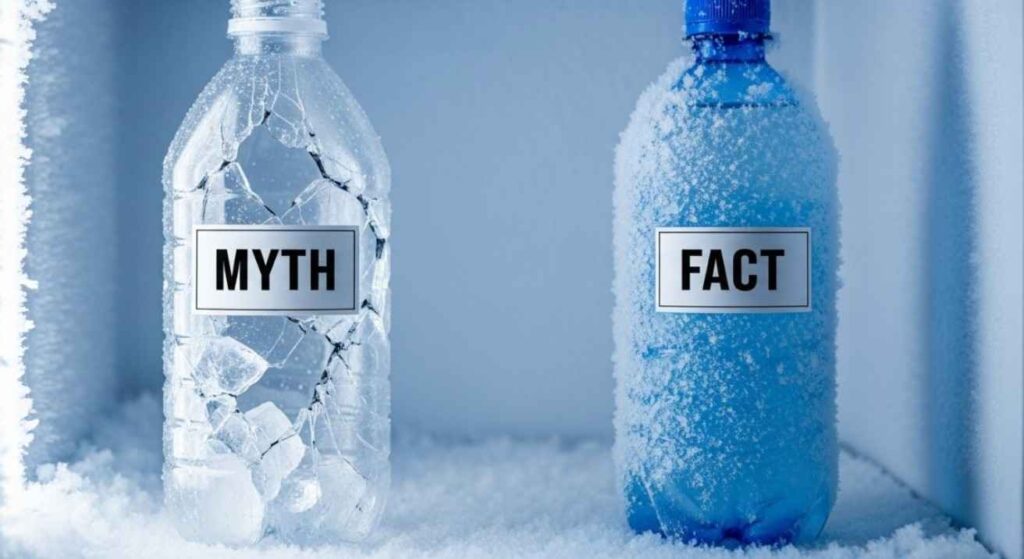
FAQs About Freezing Plastic Bottles
Q1: Do plastic bottles explode in the freezer every time?
No. Bottles only burst if they’re overfilled, made from thin disposable plastics, or exposed to extreme cold. Freezer-safe plastic bottles with extra headspace usually handle liquid expansion safely.
Q2: Which plastics are best for freezing?
HDPE (#2) and PP (#5) are freezer-safe plastics. They flex under pressure, reducing cracks. Thin PET bottles, often used for water, can become brittle and split when frozen.
Q3: Can I freeze soda or sparkling water in plastic bottles?
Not recommended. Carbonation pressure and CO₂ gas expansion make fizzy drinks far more likely to explode in the freezer.
Q4: How much space should I leave before freezing?
Always leave 1–2 inches of empty space at the top. This headspace allows liquid expansion in the freezer without creating dangerous pressure.
Q5: Does freezing make plastic safer for reuse?
No. Freezing slows chemical activity but does not remove plastic safety concerns. Always use food-grade, freezer-safe bottles for safe freezing methods.
Conclusion
So, do plastic bottles explode in the freezer? The answer is: yes, they can—but only under certain conditions. Thin disposable bottles, overfilled containers, and fizzy drinks with carbonation pressure are most likely to burst.
On the other hand, freezer-safe bottles like HDPE (#2) and PP (#5) with enough headspace can safely handle liquid expansion in the freezer.
If you want safe freezing methods, use freezer-safe plastic bottles, leave 1–2 inches of space, and avoid freezing soda or sparkling water. These small steps prevent accidents and keep your liquids safe.

